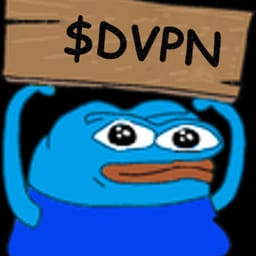Cryptocurrency and VPNs: The Crucial Role of dVPNs like Sentinel

The existence of blockchains, cryptocurrencies, and other Web3 assets is only possible through data exchanges over the internet. While blockchain technology is supposed to be transparent and secure, there are some inherent flaws that leave it vulnerable to hackers.
Because of this, it is advisable for anyone who owns digital assets to use a crypto VPN to keep their transactions secure and their information private. However, not all VPNs are created equal, and this is where decentralized VPNs (dVPNs) like Sentinel come into play.
What is a Decentralized VPN?
Decentralized VPNs, sometimes called blockchain VPNs or crypto VPNs, are virtual private networks that are compatible with digital assets such as crypto coins, NFTs, and DeFi (Decentralized Finance) assets.
Unlike traditional VPNs that rely on centralized servers, dVPNs distribute the network across a vast array of nodes, making them more secure, private, and resilient. For advanced crypto traders—or even those just taking their first steps into Web3—using dVPNs for crypto adds an important layer of security.
Because dVPNs encrypt all traffic sent across their networks, it makes it much more challenging for malicious actors to hack into a crypto wallet and steal the assets contained within.
Why Do I Need a Decentralized VPN for Crypto?
Although cryptocurrencies and blockchains technically offer secure transactions through cryptography, there are some inherent vulnerabilities within the system.
One of the advantages of trading assets on blockchains is that all transactions are transparent and anonymous—users trade their assets through a wallet address, without any identifiable real-life details.
However, the way blockchain technology operates means that these transactions are trackable and, therefore, vulnerable to hacking.
A few ways in which cybercriminals can hack into a crypto wallet include:
- Tracing the wallet's address to the owner's real IP address to find their location and identity.
- Hosting fake crypto trading competitions and stealing participants' data.
- Installing malware on a user's device which in turn installs a coin-mining software—this is called cryptojacking.
The Benefits of Decentralized VPNs like Sentinel
There are many reasons why using a dVPN for crypto is useful for both beginner and advanced users. These benefits stem from the fact that dVPNs redirect all of a user's internet traffic through anonymous, decentralized servers and shield any of the user's identifying data. Here are a few of the main reasons to consider using a dVPN like Sentinel for crypto.
Enhanced Security and Privacy
Decentralized VPNs like Sentinel distribute the network across a vast array of nodes, making it nearly impossible for hackers or surveillance agencies to compromise the entire network.
With no single entity managing the network, dVPNs ensure that no single party has access to user data or can monitor online activities. This enhanced security and privacy is crucial for protecting digital assets and preventing unauthorized access to sensitive information.
Censorship Resistance
The global spread of nodes in a decentralized VPN network makes it far more resilient against censorship attempts by governments or other entities. This is particularly important for crypto users in countries with strict regulations or outright bans on cryptocurrencies.
By using a dVPN like Sentinel, users can bypass these restrictions and access the global crypto market without fear of censorship or repercussions.
Community-Driven Development
Decentralized VPNs like Sentinel are often built and maintained by a community of users and developers, ensuring that the service remains focused on user needs and privacy.
This community-driven approach fosters trust and transparency, as users can actively participate in the development and governance of the network. Furthermore, the decentralized nature of these networks ensures that they are not beholden to the interests of any single entity or corporation.
Choosing the Best Decentralized VPN for Crypto Trading
When selecting a dVPN for crypto trading, it's essential to consider the following factors:
- Strong encryption protocols (look for military-grade encryption such as AES-256)
- IP leak protection (look for phrases like IPv6 or DNS)
- Compatibility with cryptocurrencies and other digital assets
- Reliable customer support
- A kill switch (to disconnect the device from the internet if the VPN connection fails)
- A zero-logs policy (so that it doesn't store data and, potentially, provide it to other entities)
- Split tunneling (to ensure the connection does not slow)
- A secure base country that prioritizes user privacy and does not engage in mass surveillance, such as Switzerland or Panama
- Obfuscation (this makes VPN traffic look like normal online activity)
Protect Digital Assets with Decentralized VPNs like Sentinel
No matter how many digital assets a crypto user may own or how often they execute transactions, anyone that deals with blockchains and cryptocurrencies can benefit from using a decentralized VPN for crypto. dVPNs offer an additional layer of security that assist crypto owners in protecting their assets from hacking, phishing, and even monitoring from other users and institutions.
By encrypting data, rerouting traffic through decentralized servers located in different countries, and masking real IP addresses, decentralized VPNs like Sentinel offer extra security for anyone involved in Web3.
Frequently Asked Questions
What is a Decentralized VPN for Crypto?
Decentralized VPNs, or dVPNs, are virtual private networks that assist Web3 users in protecting their cryptocurrencies, NFTs, and other digital assets. They encrypt internet traffic and mask sensitive user information, which makes it more difficult for cybercriminals to enact hacking and phishing attacks and steal a user's digital assets. Unlike traditional VPNs, dVPNs distribute the network across a vast array of nodes, making them more secure, private, and resilient.
Is a Decentralized VPN for Crypto Necessary?
Simply put, yes, using a decentralized VPN for crypto is necessary for anyone involved with Web3. These networks help patch over some of the vulnerabilities that are inherent in blockchain technology and limit the ability to track transactions and trace them back to individual users.
Without a dVPN, it is technically possible for hackers, internet service providers, and other entities to trace a crypto wallet's address to a real IP address and user identity, steal data through phishing scams, and even mount cryptojacking attacks by installing malware on a user's device that helps cybercriminals illegally mine coins.
Decentralized VPNs like Sentinel offer enhanced security, privacy, and censorship resistance, making them an essential tool for anyone involved in the crypto space.
Join Our Journey
At dVPN.news every member of the Sentinel community is a contributor. Whether you're writing articles, sharing tutorials, or participating in discussions, your involvement is what drives our collective growth, and best of all it's rewarded! Together, so if you to contribute to the growth of the Sentinel Network, you are in the right place!

Connect with Us
Stay in touch and be part of our growing community:
- Follow Sentinel on X (Twitter)
- Follow The Growth DAO on X (Twitter)
- Join The Growth DAO community Telegram Group






